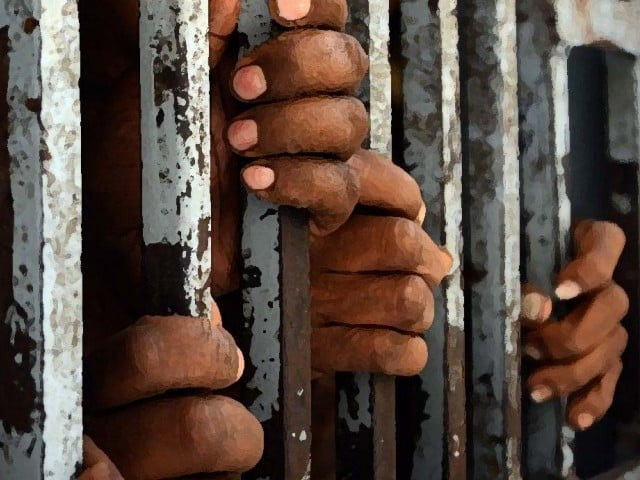Children in the system: Govt asked to establish borstal institutions, juvenile courts
Child protection officer points at minor improvements since 2000

Child protection officer points at minor improvements since 2000. PHOTO: AFP
Officials from nonprofit organisations working for the rights and protection of children in K-P met to discuss the state of the juvenile justice system in the province.
The meeting was organised by Child Rights Movement (CRM) in the city to discuss the state of the juvenile justice system, 15 years after Juvenile Justice System Ordinance (JJSO) was passed. Pakistan ratified UN Convention on the Rights of the Child (CRC) in 1990 and passed the JJSO in 2000.
However it is far from being implemented, said Imran Takkar, an executive body member of CRM. “JJSO was passed to protect juvenile offenders and help them reintegrate into society as soon as they are released. However, they continue to be treated like adult offenders,” said Takkar.
According to a report issued by Society for the Protection of the Rights of the Child (SPARC), there were over 1,000 juvenile inmates in the prisons in K-P in 2000. In 2014, there were 301 of them.
No courts, no aid
Senior Advocate and K-P Child Protection and Welfare Commission Deputy Chief Ijaz Muhammad said Section 3(1) of the JJSO requires the government to provide free legal assistance to juvenile offenders. “However, there is no data available to show if free legal assistance is provided to juveniles in accordance with JJSO 2000,” he said. Organisations like SPARC, Aurat Foundation and other nonprofits provide free legal assistance to children.
Muhammad added, “Section 4(1) of JJSO binds federal and provincial governments to establish a juvenile court in each district. However, no such court was established anywhere in the province.”
He said existing courts were given the status of juvenile courts. In 2003-04, the government of K-P announced establishment of exclusive juvenile courts at the divisional level. This was followed by a campaign led by the Juvenile Justice Network K-P. However, this announcement “failed” to materialise, Muhammad added.
The JJSO 2000 also made way for children to be released from prisons on probation, he said. “In the year 2000, there was not a single juvenile who had been released on probation in K-P. However, there were 56 juveniles on probation in 2014.”
As a result of constant campaigning by social activists, the number of probation officers increased in the province and six female probation officers were also appointed, said Muhammad.
FATA Lawyers Forum leader Ijaz Mohmand said, “The JJSO 2000 calls for the establishment of borstal institutions (rehabilitation/correctional facilities) but not a single institution has been established in K-P so far.” He said one of the reasons behind the absence of borstal institutions in the province was the absence of a borstal law.
Following an advocacy campaign, the K-P Borstal Institutions Act was introduced in 2012. A special budget was allocated to establish borstal institutions in Bannu, Peshawar and Haripur and a building was also constructed in Bannu. However, it was not made operational.
“The K-P government should immediately establish borstal institutions in Bannu and Haripur as buildings are available in both districts,” he said.
Published in The Express Tribune, November 28th, 2015.













COMMENTS
Comments are moderated and generally will be posted if they are on-topic and not abusive.
For more information, please see our Comments FAQ